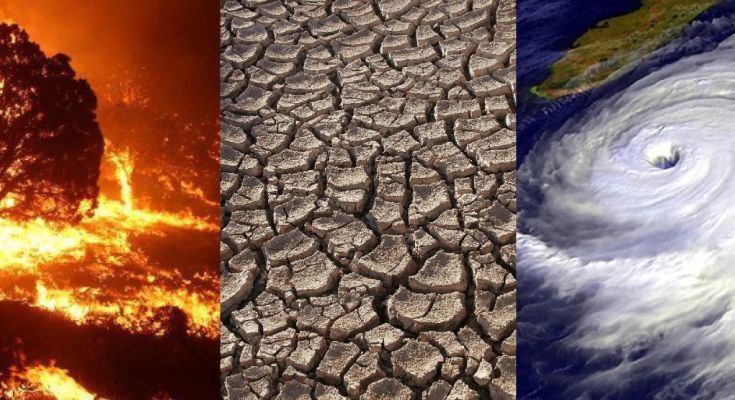Climate Change Summit: Progress, Challenges, and Future Initiatives
Introduction:
The issue of climate change has become increasingly urgent, with the impacts of rising temperatures, extreme weather events, and environmental degradation being felt around the world. In response to this global crisis, nations, organizations, and communities have come together in a series of Climate Change Summits to address the challenges, chart a path towards sustainability, and commit to collective action. In this article, we will explore the progress made, the challenges faced, and the future initiatives envisioned in the ongoing fight against climate change.
Progress:
Over the past few decades, significant progress has been made in raising awareness about climate change, advancing scientific understanding, and mobilizing political will to address the issue. International agreements such as the Paris Agreement, adopted in 2015, have provided a framework for global cooperation and commitment to reducing greenhouse gas emissions and limiting global warming to well below 2 degrees Celsius above pre-industrial levels.
Climate Change Summits, such as the annual United Nations Climate Change Conferences (COP), have served as platforms for countries to come together, share knowledge, and negotiate agreements to tackle climate change. These summits have led to the establishment of initiatives such as the Green Climate Fund, which provides financial assistance to developing countries for climate mitigation and adaptation efforts, and the Intergovernmental Panel on Climate Change (IPCC), which produces scientific assessments of climate change and its impacts.
Furthermore, advancements in renewable energy technologies, energy efficiency measures, and sustainable practices have helped to reduce emissions and transition towards a low-carbon economy. Investments in clean energy, such as solar, wind, and hydroelectric power, have grown significantly in recent years, contributing to the decarbonization of energy systems and the reduction of reliance on fossil fuels.
Challenges:
Despite progress in addressing climate change, significant challenges remain that threaten to undermine efforts to mitigate its impacts and achieve sustainable development. One of the biggest challenges is the continued dependence on fossil fuels and the lack of ambitious emission reduction targets by some countries. The burning of fossil fuels for energy production, transportation, and industrial processes remains the largest source of greenhouse gas emissions, contributing to global warming and environmental degradation.
Additionally, the unequal distribution of climate impacts and vulnerabilities exacerbates existing inequalities and disparities, disproportionately affecting marginalized communities, indigenous peoples, and developing countries. Climate change exacerbates poverty, food insecurity, and displacement, exacerbating social and economic challenges and hindering efforts to achieve the Sustainable Development Goals (SDGs).
Furthermore, political divisions, vested interests, and competing priorities among countries have hindered progress in international climate negotiations and cooperation. Disagreements over burden-sharing, financial assistance, and technology transfer have stalled efforts to reach consensus on ambitious climate action and commitments.
Future Initiatives:
Despite the challenges, there is growing momentum and commitment to accelerate climate action and address the urgent need for transformative change. Future initiatives envisioned include:
- Enhanced Nationally Determined Contributions (NDCs): Countries are expected to update and enhance their NDCs under the Paris Agreement to reflect more ambitious emission reduction targets and climate adaptation measures. This includes setting long-term net-zero emission targets and implementing policies and strategies to achieve them.
- Green Recovery and Sustainable Development: In response to the COVID-19 pandemic, there is an opportunity to build back better and promote green recovery initiatives that prioritize sustainability, resilience, and equity. Investments in renewable energy, green infrastructure, and nature-based solutions can create jobs, stimulate economic growth, and reduce emissions.
- Just Transition and Social Equity: Climate action must be accompanied by efforts to ensure a just transition for workers and communities affected by the shift to a low-carbon economy. This includes providing support for reskilling, job training, and economic diversification in sectors such as renewable energy, energy efficiency, and sustainable agriculture.
- Nature-Based Solutions and Biodiversity Conservation: Protecting and restoring ecosystems, such as forests, wetlands, and coral reefs, can help mitigate climate change, enhance resilience, and safeguard biodiversity. Nature-based solutions, such as reforestation, afforestation, and sustainable land management, can sequester carbon, regulate water cycles, and provide essential ecosystem services.
- International Cooperation and Solidarity: Global challenges require global solutions, and international cooperation is essential for addressing climate change effectively. Countries must work together to mobilize financial resources, transfer technology, and build capacity to support climate action in developing countries. This includes honoring commitments to provide climate finance, meeting targets for climate adaptation and mitigation, and fostering collaboration on research and innovation.
Conclusion:
Climate Change Summits play a crucial role in shaping the global response to climate change, fostering dialogue, and catalyzing action at the national, regional, and international levels. While progress has been made in raising awareness, mobilizing resources, and implementing climate policies, significant challenges remain that require urgent and concerted efforts from all stakeholders.
By embracing ambitious emission reduction targets, promoting sustainable development, and prioritizing equity and social justice, countries can work together to build a more resilient, equitable, and sustainable future for generations to come. Climate Change Summits provide an opportunity to reaffirm commitments, forge partnerships, and accelerate the transition to a low-carbon, climate-resilient world. Through collective action and solidarity, we can rise to the challenge of climate change and create a healthier, more prosperous planet for all.
For more information visit: elmzaango.com
For more information visit: newsburing.com
